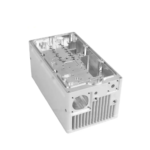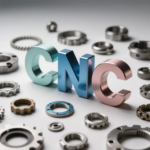In recent years, India has become an important player in the global precision engineering market, with CNC machining at the forefront of this growth. CNC machining or computer numerical control machining involves the use of computer-controlled machine tools to manufacture precise parts and components. This technology revolutionized manufacturing, enabling companies to produce high-precision parts with increased speed, accuracy and efficiency.
The future of precision engineering in India
India’s manufacturing industry has been growing rapidly due to the growing demand for high-quality products and components. The country’s CNC processing industry has been at the forefront of this growth, with many Indian companies making substantial investments in CNC machine tools and technologies. This enables Indian manufacturers to produce high-precision parts and components that are in great demand worldwide.
Benefits of CNC machining in India
CNC machining offers some benefits to Indian manufacturers, including:
- Improve accuracy and accuracy: CNC machining ensures high precision of parts manufacturing, which is crucial in industries such as aerospace, automotive and medical.
- Increase speed: Compared to manual machining, CNC machines work faster and more efficiently, allowing manufacturers to produce parts quickly and cost-effectively.
- Save costs: CNC machining reduces labor costs and minimizes the risk of human error, thus saving manufacturers a lot of costs.
- custom made: CNC machining enables manufacturers to produce complex parts with custom sizes and functions, while traditional machining methods are impossible.
Challenges and opportunities
Despite significant progress in India’s CNC processing industry, there are still some challenges to be addressed. Some of the main challenges include:
- Skilled labor: India faces a shortage of skilled CNC mechanics, which may hinder the industry’s growth.
- Technology Investment: Indian manufacturers need to invest in the latest CNC machine tools and technologies to keep the global market competitive.
- Regulatory environment: The Indian government needs to create a favorable regulatory environment to encourage investment in the CNC processing industry.
prospect
Despite the challenges, the future prospects for the CNC processing industry in India are still bright. The government has played a role in supporting the development of the industry, and many Indian companies are investing heavily in CNC machine tool technology and technology. As a result, India may become an important player in the global CNC processing market.
in conclusion
In short, CNC machining is an important technology for the future of precision engineering in India. Despite challenges to be addressed, the benefits of CNC machining, including increased accuracy, increased speed, cost savings and customization, make it an attractive choice for Indian manufacturers. With the right technology investment and a skilled workforce, India can become a global leader in the CNC processing industry.
FAQ
Yyyymmdd
Q: What is CNC processing?
Answer: CNC machining or computer numerical control machining is a process of using computer-controlled machine tools to manufacture precise parts and components.
Q: What are the benefits of CNC processing?
A: The benefits of CNC machining include improved accuracy and accuracy, increased speed, cost savings and customization.
Q: What challenges does the CNC processing industry in India face?
A: Some of the major challenges facing the CNC machining industry in India include the lack of skilled CNC mechanics, the need for technology investments and the need for a favorable regulatory environment.
Q: What is the future prospect of the CNC processing industry in India?
A: The future prospects for the CNC processing industry in India are very bright, and the government and many Indian companies have invested in the latest CNC machine tools and technologies to maintain competitiveness in the global market.










